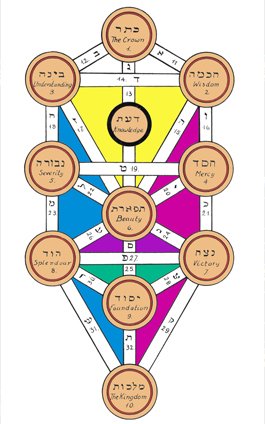Cleaning out our Hametz on Passover
This year gearing up for passover, I’ve been thinking about the hametz habits in my life. By hametz I mean the metaphorical "bread" that I carry, eat and benefit from all year round, but want to clear out for Passover, to journey into freedom without it’s burden. I know my hametz isn’t completely bad, just like bread isn’t completely bad. It’s necessary for my survival and flourishing throughout the year. But too much bread, as my digestion well-knows, is not good for the body or the spirit. What behaviors and patterns, what personal hametz, I asked myself, do I have in excess?
While contemplating this question, I began preparing for a program I am teaching at Passover in the desert with Wilderness Torah on the prophetess Miriam. Miriam holds a key role in the story of Exodus, and she is associated with the Kabbalist sphere Gevurah, strength. Her story is one of a powerful, confident woman and child: first she challenges her father for divorcing her mother, causing them to remarry and conceive Moshe; she challenges Pharaoh’s authority as a midwife’s assistant; she prophesied the birth of Moshe, who she predicts will save all of Israel; her merit caused a well of fresh water to accompany the Israelite through their desert wandering; in the eyes of God, she is considered a leader just as much as Moshe and Aharon, and functions as such in the community; and the most well known story, where she leads the Hebrew women through the dead sea with song and dance. She is an embodied, confident women, and she is not afraid to show leadership and express her visions.
This Gevurah, I realized, is my hametz. Throughout the year I foster my inner strength, my confidence, my self validation that I have something important to offer the world and I deserve to be heard. My strong Gevurah is one of my greatest gifts. It supports the way I walk in the world, and encourages me to be myself despite external pressures. It helps me judge difficult situations and protect myself, and it helps me protect others from injustices I witness. Just like saying ha’motzie over bread covers the blessings for everything at a meal, my Gevurah lays a supportive blanket over my various qualities and aspirations.
But power is a tricky thing; it can hinder just as easily as help. Sometimes I see my Gevurah get out of hand — it thinks it is protecting me with a harsh word or a confrontation, but really it is embarrassing me and alienating others. Miriam also struggles this way, which we learn when she gossips about her disapproval of Zipporah, Moshe’s wife. God’s punishment for Miriam’s actions teaches us that too much Gevurah is dangerous: the goal is to maintain a balance between Gevurah and its partner, Chesed, lovingkindness.
For passover, I am going to give Gevurah a backseat and put Chesed at the wheel. I wonder, what will it be like to let myself be a little weaker, more vulnerable, to douse the fire? Will I feel quieter and calmer, or will I feel frustrated and limited? What will it be like too let every action be dictated by loving-kindness as the goal?
In the larger story of Passover, it is important to question the balance of strength and kindness. Our story is rich with moral dilemmas and retribution and suffering, and our world is filled with the same. Passover is a time to tell our stories, and to challenge our stories. It is a time to take a new approach, a new behavior that is “unlike every other night.” It is time to tell our Gevurah opinions, and to share our Chesed warmth around a table of friends and feasting.
In our last hours of slavery, I bless you to have a Passover filled with stories and memories, of insight and judgement, of disappointment and of hope. I invite you to discover the qualities of your personal hametz, whatever that may be, and give it a critical honest eye. And I encourage you to share your growth with your loved ones and community, and invite them to do the same.
Yours,
Ariel


